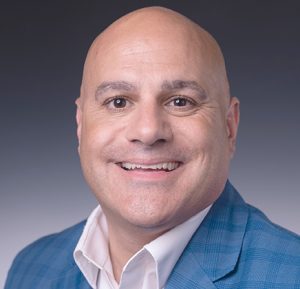SYRACUSE, N.Y. — The U.S. intelligence community has designated Syracuse University as one of eight national Intelligence Community Centers for Academic Excellence (IC CAE), with a funding award of $1.5 million over five years.
Syracuse University is one of eight universities selected, per a Syracuse news release. The group also includes the University of Arizona, University of North Carolina at Charlotte, and the University of Southern California.
Established in 2005 by Congress, the IC CAE program is designed to increase the number of “culturally and ethnically diverse, multi-disciplinary” professionals in the intelligence community.
(Sponsored)

Year-End Benefits Check: Is Your Team Getting the BOOST They Deserve for 2026?
As we close out 2025 and finalize employee benefits for the coming year, there’s one question every small to medium-sized business owner should ask: Are your employees truly understanding—and maximizing—the

House of Representatives Passes $78 Billion Tax Package
On January 31, the House of Representatives overwhelmingly passed the Tax Relief for American Families and Workers Act of 2024, a tax package worth $78 billion. The bill was approved
Syracuse University will lead a consortium of schools to recruit and educate “talented, diverse” students interested in public-service careers in the intelligence field.
The consortium is known as the Partnership for Educational Results/Syracuse University Adaptive, Diverse and Ethical intelligence community professionals (PER/SUADE).
The consortium’s partner schools include Norfolk State University, a historically black university; the Grove School of Engineering at the City College of New York; and other institutions.
This multi-faceted recruitment and education initiative leverages the university’s leadership and strengths in a range of security-related disciplines, Syracuse contends. They include STEM, public affairs, law, forensics, military affairs, disability studies, and language and cultural studies. STEM is short for science, technology, engineering, and mathematics.
Building partnerships with the consortium partners will enable PER/SUADE to “share complementary strengths and attract diverse” students, like military veterans, as well as historically underrepresented students, including women; ethnically, culturally and religiously diverse students; and students with disabilities.
Michele Wheatly, Syracuse vice chancellor and provost, called the school’s selection for the designation “an honor.”
“This recognition acknowledges the tremendous research of faculty members engaged in these interdisciplinary fields and the strength of our academic enterprises committed to supporting a diverse set of scholars in the classroom and the field,” said Wheatly.
Affiliated faculty members will support PER/SUADE’s mission by developing an intelligence-related curriculum, including major and minor degree options and a certificate program; professional development and faculty research opportunities; and culturally immersive experiences.
The program will provide students interested in pursuing a career in the area of intelligence with a “strong” academic foundation and “experiences that will increase their success” in finding a career in any of the U.S. intelligence agencies, Syracuse stipulates.
Along with their studies, IC CAE students will have opportunities to study abroad at more than 45 locations, with language instruction, cultural immersion and regional studies, and to participate in seminars, career talks, field trips and conferences.
Contact Reinhardt at ereinhardt@cnybj.com




